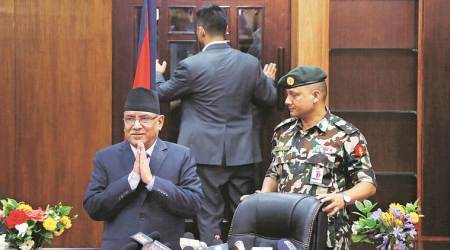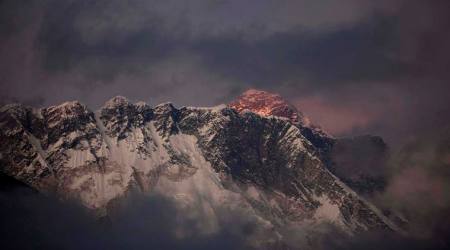 Photo for representational purpose
Photo for representational purpose
In the few weeks preceding his resignation as prime minister and as “caretaker” executive head, the one message Pushpa Kamal Dahal has tried to send out is that he is not “India’s man”. His government took a series of decisions that have significant political import for Nepal as well as India and China.
Ahead of the Beijing summit, Nepal joined China’s ambitious and strategic Belt and Road Initiative. Last week, Dahal approved a recommendation of the Poverty Alleviation Fund that China be given larger autonomy or freedom to decide and execute smaller developmental projects in 16 districts along the Tibet border, ranging from construction to developing small hydro-projects. This is a privilege that India alone has enjoyed so far. Dahal also decided to endorse a proposal of K.P. Oli, his predecessor in the PM’s office, to entrust the 1200-MW Budigandaki project to Ghejua, a Chinese company, without inviting tender.
The government in its budget statement said Nepal will follow a policy of “equal distance” towards its two neighbours. Dahal, soon after his visit to China in March, had stated in parliament that his actions will be a reply to those who started an “orchestrated campaign” that he had become prime minister as a part of “Indian design and interest”. The statement was aimed at Oli and his party, the Communist Party of Nepal-Unified Marxist Leninist.
Dahal’s proximity to the Indian establishment and the latter’s role in bringing the Maoists from insurgency to the centrestage of electoral politics in Nepal is well known. But what Dahal has realised, especially when out of power, is that drifting closer to the northern neighbour gives him both a “progressive and nationalist image” as China is perceived to honour Nepal’s sovereignty more than any other country. China’s geo-strategic approach is not perceived in Kathmandu as detrimental to Nepali interests. That possibly is the reason why Nepal is now preparing to allow China, like India, to independently select development projects, in the border areas. It also conveys the message that Nepal falls into the joint “sphere of influence” of both neighbours in equal measure.
Meanwhile, Nepal’s politics continues to be fluid and uncertain. Dahal has claimed the successful completion of local elections in 283 places out of a total of 744 as a major breakthrough in the promotion of grass-roots democracy. The challenge for Nepali Congress leader Sher Bahadur Deuba, who succeeds Dahal as PM, is to complete the poll process in the rest of the country by June end.
In the meantime, India, which had been patronising Madhes-centric parties and openly extending solidarity when they boycotted the new constitution and the first round of local polls held last month, has changed its stance. It has asked the erstwhile United Democratic Madhes Front to participate in the second round of polls and seek redress for their grievances within the constitutional process. The Madhes leaders feel let down by the government.
The reasons behind India’s change of track are not clear. It may be New Delhi responding positively to the criticism in Kathmandu that India micro-manages Nepal’s internal affairs. Whatever be the reason, it marks a departure from the approach India has taken in the past decade-and-a-half. If it really leads to India withdrawing from Nepal’s domestic politics, the Nepali people are likely to welcome it.
However, a cosmetic review of its Nepal policy is unlikely to turn the tide in India’s favour. India will need to tell the leaders it has trusted and endorsed that unless they involve the people in the making of key political agendas, political stability is hard to come by. The new Indian ambassador, Manjeev Singh Puri, has often told Nepalis who have met him that India’s “vested” interest lies in keeping Nepal “stable and prosperous”. This, however, will require more substantial effort.

